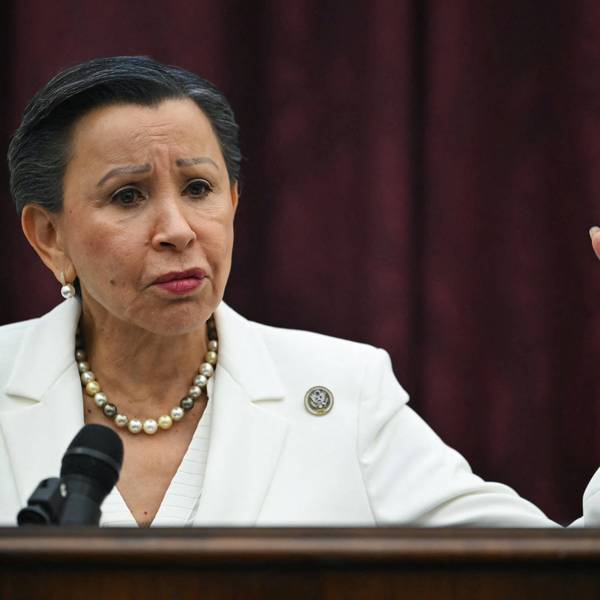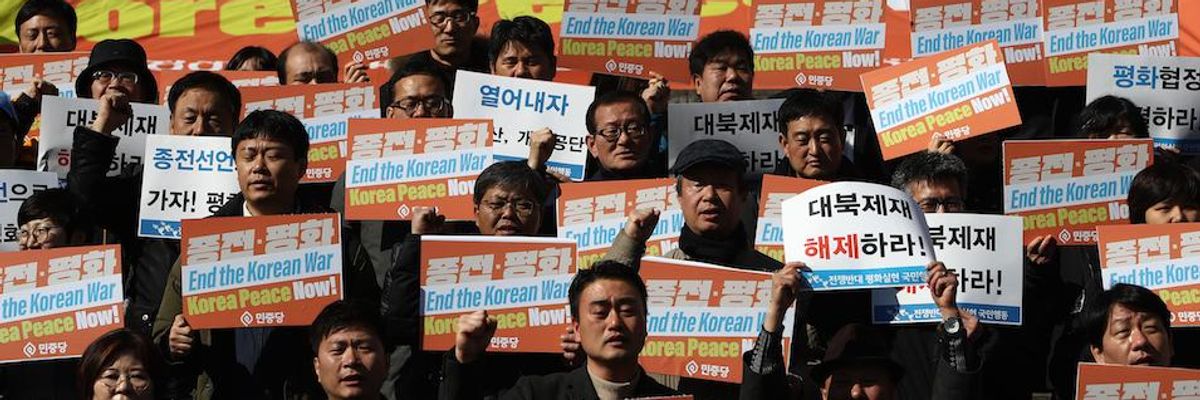Rep. Ro Khanna (D-Ca.) introduced a House resolution to end the Korean War on Tuesday after 69 years of conflict. The resolution comes as President Donald Trump is in Hanoi, Vietnam, in advance of a historic meeting with North Korean President Kim Jong Un to discuss North Korean denuclearization.
"Historic engagement between South and North Korea has created a once-in-a-generation opportunity to formally end this war," Khanna said in a statement. "President Trump must not squander this rare chance for peace."
Khanna's resolution (pdf) was cosponsored by 18 House progressives, including Rep. Pramila Jayapal (D-Wa.), Rep. Barbara Lee (D-Ca.), and Rep. Deb Haaland (D-N.M.).
Kim's openness to dialogue with the American president comes after a thawing of relations with South Korean President Moon Jae-in. Moon and Kim met at the DMZ, or demilitarized zone, on April 26, 2018, as a show of unity in friendship. Since that meeting, Kim and Moon have pushed to end hostilities, but the push is complicated by the U.S. presence in South Korea and decades of tension.
A number of U.S. commentators and experts have treated the coming summit with suspicion and fear, claiming that simply by meeting with Kim, Trump is giving the North Korean leader an aura of legitimacy that's undeserved and damaging American standing in the world.
In the resolution, however, Khanna and his cosponsors pointed to statements from Moon that assert U.S. military personnel will remain in the peninsula irrespective of the war, thereby assumedly negating a threat to national security. The resolution also states that ending hostilities should not be confused with an acceptance of a nuclear North Korea. "An end to the state of war would not legally imply recognition of North Korea as a nuclear weapons state," reads the resolution.
The resolution was met with support in progressive circles.
In a statement, Kevin Martin, president of the anti-war group Peace Action and the coordinator of the Korea Peace Network, said that he was hopeful the diplomatic process would win out this time.
Khanna's legislation, Martin said, "offers a common sense vision for achieving peace and advancing nuclear disarmament on the Korean Peninsula that all members of Congress should be able to get behind."
The timely introduction of the bill, he added, "offers a blueprint for diplomacy that rightly acknowledges that real progress cannot be made in negotiations without reciprocal steps and confidence-building measures by all parties at the table."
The resolution also received public backing from former President Jimmy Carter.
"Ending the threat of war is the only way to ensure true security for both the Korean and American people," Carter said in a statement, "and will create the conditions to alleviate the suffering of the ordinary North Koreans who are most harmed by ongoing tensions."




